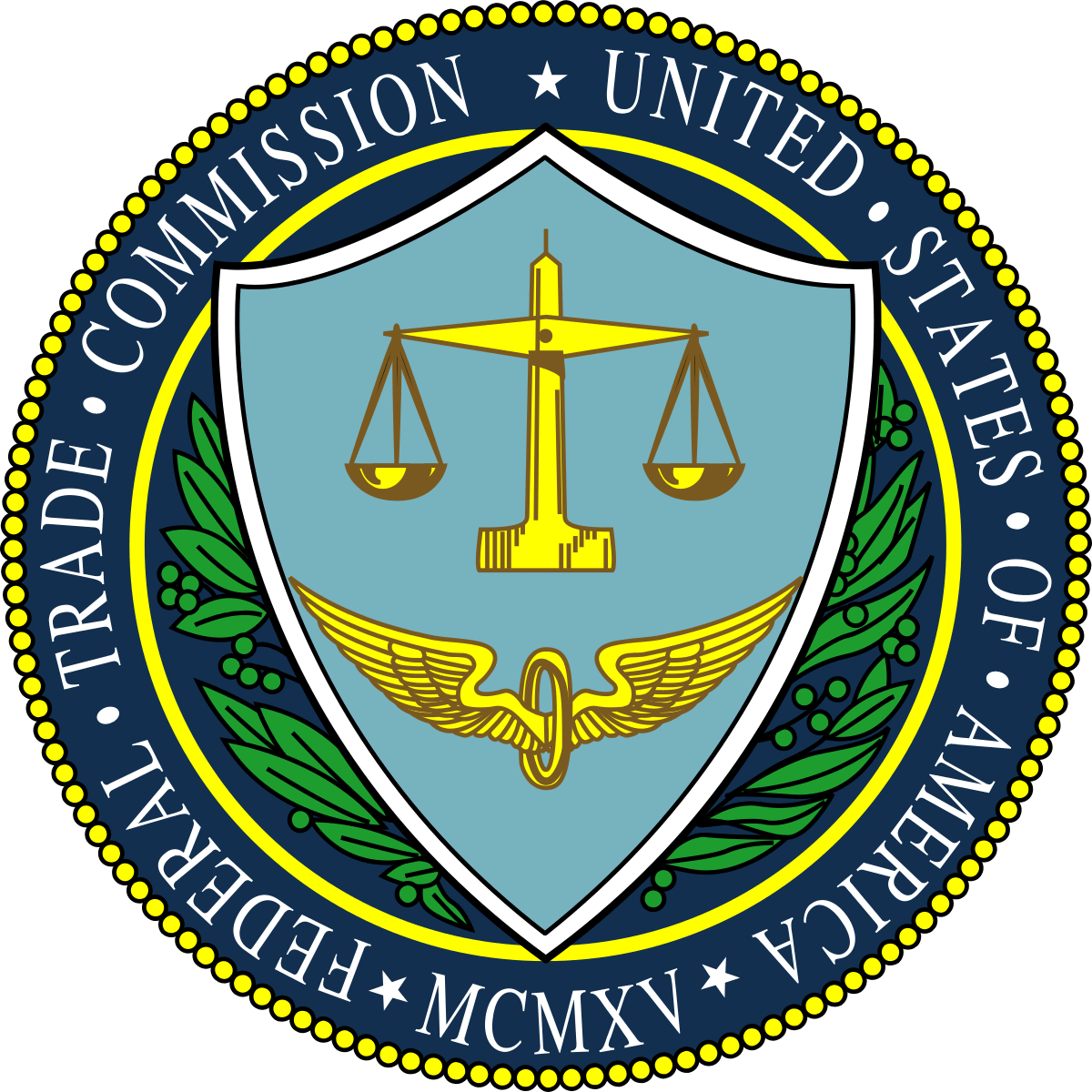Federal Trade Commission (FTC)
The Federal Trade Commission (FTC) was established in 1914 for the purpose of keeping trade and commerce fair and unmonopolized. It is an independent agency under the Executive Branch, meaning it is not a part of the Executive Office. Comprised of 8 divisions, 3 bureaus, and 12 offices, FTC supervises government operations, the economy, and regulatory oversight. FTC has a twofold objective: protect consumers and protect business owners from anticompetitive, unfair, and dishonest business practices.

FTC tracks the marketing and advertising of everything sold in the United States nationally and internationally. The FTC Division of Advertising focuses on promoting safe and beneficial marketing practices for alcohol, tobacco, and food for children. The Office of International Affairs partners with other international agencies that have the same purpose as FTC: the pursuit of a fair and competitive business environment. In regulating so many different products, FTC often works alongside other federal government departments, such as the Food and Drug Administration (FDA) and the United States Department of Agriculture (USDA). FDA handles requirements concerning food, dietary supplements, cosmetics, and more. USDA handles requirements for organics, meat, poultry, eggs, and catfish. A business selling food, drugs, dietary supplements, and cosmetics in the United States needs to be aware of the regulations set by the FDA, USDA, and FTC. FTC identifies marketing and advertising requirements as labeling regulations. This includes internet-based marketing as well as labels on products. Both the manufacturer and the importer may be held responsible for labeling, including disclaimers or warnings to keep consumers safe. Advertising and labeling claims must be truthful and not misleading. Failing to comply with these regulations can cause the manufacturer or seller to receive fines, import detentions, import refusals, and product seizures from FDA.
Between FDA, USDA, and FTC, labeling is highly regulated in the United States and it is important to be aware of some of those requirements. Organics, for example, are regulated by both FTC and USDA. USDA requires organics to be certified, and FTC regulates how those organics are advertised. Dietary supplements and cosmetics are regulated by both FTC and FDA. FTC primarily focuses on advertising claims on the internet, while FDA specializes in the claims made on the physical label. Both FDA and FTC have standards regarding claims substantiation and stress the need for scientific evidence about the benefits and safety of regulated products. All these agencies seek out improper claims that could mislead or deceive a customer and it is our goal to help you avoid fines, detentions, refusals, and seizures by correcting your products’ claims before it is too late.
